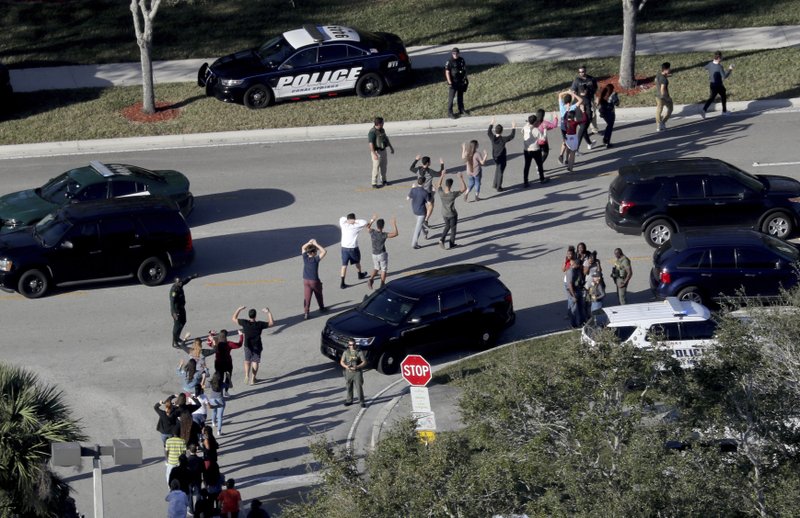WASHINGTON -- President Donald Trump's plan to combat school shootings will include helping states pay for firearms training for teachers and a call to improve the background check system.
But Trump's plan will not include a push to increase the minimum age to buy assault weapons or an embrace of more comprehensive background checks.
Instead, a new federal commission on school safety will examine the age issue as part of a longer-term look at school safety and violence.
In a call with reporters Sunday night, administration officials described the plan as a fulfillment of Trump's call for action in the wake of the school shooting in Parkland, Fla., that left 17 students and staff members dead.
[PRESIDENT TRUMP: Timeline, appointments, executive orders + guide to actions in first year]
"Today we are announcing meaningful actions, steps that can be taken right away to help protect students," said Education Secretary Betsy DeVos, who will chair the commission.
As part of that plan, the White House has directed the Justice Department to help states partner with local law enforcement to provide "rigorous firearms training to specifically qualified volunteer school personnel," said Andrew Bremberg, director of the president's Domestic Policy Council.
Trump is calling on states to pass temporary, court-issued Risk Protection Orders, which allow law enforcement officers to confiscate guns from individuals who pose risks to themselves and others, and temporarily prevent them from buying firearms.
The president is also calling for better coordination among officials in mental health care, school and law enforcement.
In the weeks since the deadly school shooting, Trump has held listening sessions with lawmakers, survivors of other recent school shootings and the families of victims. He's also met and spoken with the heads of the National Rifle Association. The NRA on Friday sued Florida over a new gun law signed by Republican Gov. Rick Scott that bans the purchase of firearms by anyone under the age of 21.
During those meetings, Trump advocated arming certain teachers and school employees, arguing that gun-free schools are "like an invitation for these very sick people" to commit murder.
"If you had a teacher who was adept at firearms, they could end the attack very quickly," he has said.
During the conversations, Trump also seemed to voice support for "universal" background checks, which would apply to private gun sales and those at gun shows, instead of just from licensed dealers. He also raised eyebrows by suggesting that law enforcement officials should be able to confiscate guns from those they deem a safety risk even before a court has weighed in.
Sarah Huckabee Sanders, the White House press secretary, later walked back both suggestions.
The White House reiterated its support for improvements to the National Instant Criminal Background Check through the "Fix NICS" bill, which would penalize federal agencies that don't properly report required records and reward states that comply by providing them with federal grant preferences.
The bill was written in response to a shooting last November by a gunman whose domestic violence conviction the Air Force failed to report to the National Criminal Information Center database. It has already passed the House.
The White House also supports a second bill that would create a federal grant program to train students, teachers and school officials how to identify signs of potential violence and intervene early. The Republican-controlled House is expected to vote on the STOP School Violence Act this week.
Trump has also vowed to ban the use of bump stock devices that enable guns to fire like automatic weapons. The Department of Justice has also been moving forward with that effort.
A Section on 03/12/2018
